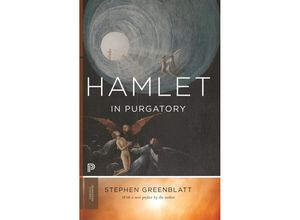Beyond its brilliant illumination of Hamlet Stephen Greenblatt's book uses historical evidence
to probe the nature of human memory--by nature insistent contradictory in every sense
haunted--as it copes with the stark yet mysterious reality of death. With a rare combination
of learning imagination and grace Greenblatt has created an exciting work of scholarship
alert to the ways a great work of art can both resemble and transform other modes of discourse
and perception.--Robert Pinsky Hamlet in Purgatory is a virtuoso exercise in untangling the
interwoven threads of feeling and belief in early-seventeenth-century England . . . In this
bold and brilliant book Greenblatt demonstrates utterly compellingly why Hamlet can still hold
our spiritual attention today.--Lisa Jardine My understanding of the traditions concerning
Purgatory both learned and popular has been gratifyingly deepened by the rich detail of
Greenblatt's study. . . . The nature of the ghost of Hamlet's father is an old scholarly puzzle
but Greenblatt's book raises the discussion to a new level and does so without dogmatism
rather with a subtle acceptance of the ambiguities inherent not only in the Ghost but in the
great play as a whole. The book will be welcomed by all who care about the subject and for the
insights already known to abound in this scholar's work.--Frank Kermode Stephen Greenblatt is a
famously beguiling writer. That power of enchantment does not fail him here. His skill as a
storyteller is constantly on display. But so too is his no less renowned skill as a skeptically
demystifying cultural critic. The result is a book whose remarkable energy derives as does
that of Hamlet itself from the mutually contradictory impulses it so tellingly
expresses.--Richard Helgerson University of California Santa Barbara This book is a brilliant
essay on memory. Although it serves as a learned history of the idea of Purgatory and a subtle
reading of Hamlet it is primarily a book about how a culture faces loss one that is
gracefully even movingly written and one which reveals as always Greenblatt to be an
unusually sensitive critic and thinker.--David Scott Kastan Columbia University



